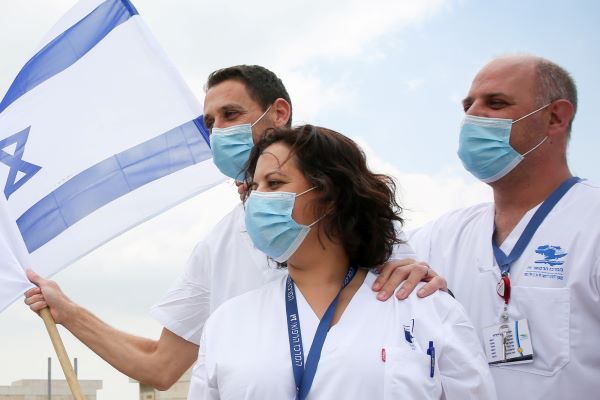Anonymous service, launched first in New Jersey, has Israeli trauma experts teaching methods for self-calming and stress relief.
By Abigail Klein Leichman, ISRAEL21c
A group of Israeli mental health professionals has created “Corona Care Israel” in partnership with United Hatzalah of Israel to provide mental health care, grief counseling and emotional stabilization for first responders and medical professionals in the United States.
The pilot project launched last week in New Jersey. If successful, it will be made available in other US states hard hit by Covid-19.
“Medical professionals were experiencing a tremendous amount of stress and burnout under the load of the coronavirus surge,” explained clinical psychologist Sharon Slater, a leading member of United Hatzalah’s Psychotrauma and Crisis Response Unit.
But despite “a significant need for mental health support,” many are reluctant to seek help within their own organizations,
“The fact that we don’t know them is a key point,” Slater said. “The anonymity is a big piece of it. Speaking to a therapist in another country is about as anonymous as you can get.”
Slater was on the United Hatzalah team that flew to Houston to give psychosocial support to Hurricane Harvey survivors in September 2017.
A friend of hers, an anesthesiologist working with coronavirus patients in New York City, contacted her about the stress he and his colleagues were experiencing. He knew of the Israeli unit’s assistance in Texas and in other trauma situations including the Pittsburgh synagogue shooting in October 2018.
That conversation led to the formation of Corona Care Israel.
“We’re looking to teach brief practical techniques to frontline health workers that allow them to learn to lower their stress levels on their own with a little practice and help them calm themselves in moments when they feel anxious,” said Slater.
The 10 professionals staffing the pilot were all raised in the United States apart from two Spanish speakers selected to aid Spanish-speaking callers.
“We have additional people lined up if we see a large response and want to train more,” Slater said.
She noted that Covid-19 presents a difficult emotional challenge to frontline workers because it is ongoing with no defined endpoint. “That’s very different than the kind of stress we usually see in a traumatic situation and it’s a real recipe for PTSD.”
